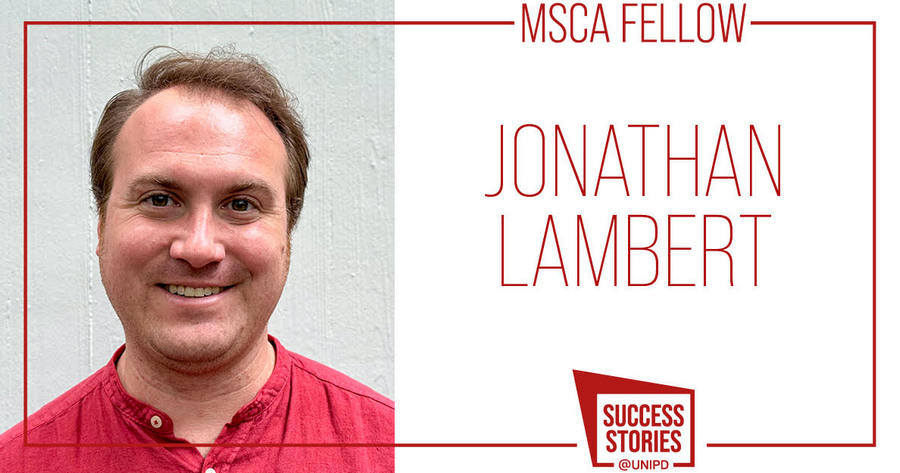
MSCA Fellow: Jonathan Lambert
An American in Padova working in an interdisciplinary environment to study the intersection of mitochondrial and cardiovascular biology.

Jonathan Lambert is a trained basic cardiovascular biologist with a particular interest in studying mitochondria. He obtained his PhD from Temple University in Philadelphia, where he investigated mitochondrial calcium signalling in heart disease.
To become a mitochondrial expert Jonathan sought out supervision and training under Prof. Luca Scorrano, a pioneer in mitochondrial dynamics, at UniPD in the department of Biology.
His project MitoFORMsinHF investigates how mitochondrial cristae form, function, and organization are dependent upon metabolic sources and how this implicates in heart failure.
Jonathan, can you shortly explain your research project? What impact do you expect your research project will have?
In the Scorrano lab we study the powerhouse of the cell, mitochondria. Everyone has heard the expression “you are what you eat”, my project studies how specific metabolites in our food sources influence the structure and function of our mitochondria. Mitochondrial structure is often dysfunctional in disease and this research will determine if shifting metabolism has therapeutic potential.
You studied in the USA and obtained your PhD from Temple University in Philadelphia; why did you decide to come to Padua?
The legendary American chef, Anthony Bourdain, said “If I'm an advocate for anything, it's to move. As far as you can, as much as you can. Across the ocean, or simply across the river. The extent to which you can walk in someone else's shoes or at least eat their food, it's a plus for everybody.” So why Padua? Why come to a University that is over 800 years old, where Galileo taught, where William Harvey took classes, where the world’s first anatomical theater and botanical garden were established. Why not? Walking in the same streets of our scientific ancestors and visiting these historical scientific landmarks is a unique post-doc experience for an American and is highly enriching.
How important is it for your research to work with a supervisor and a research group?
Working under Prof. Scorrano, a pioneer in mitochondrial dynamics, and in the Scorrano lab, an international team of fellows from over 12 countries, is a privilege. Mitochondria are in nearly every cell of the body and while each group member is a mitochondrial expert, we are uniquely expert in diverse subspecialties. It is fascinating to see how my colleagues investigate mitochondria in neurobiology, cancer, skin pigmentation, and optics. This stimulating, interdisciplinary environment constantly gives me new ideas to cross-pollinate findings from other fields to cardiac biology.
What are your plans for the future, after you finish the MSCA-IF fellowship?
My goal is to head a lab that houses an international hub of curious minds passionate about researching the intersection of mitochondrial and cardiovascular biology.
MSCA proposals require the researcher to respond not only to questions related to his/her research, but also to define cross-cutting aspects, such as communication, data management or gender aspects. Do you think it is useful for a researcher to learn how to deal with these topics, acquiring these new skills? Why?
These skills have always been in a scientist’s tookit but the exponential evolution of the technological revolution requires adaptation to new tools. Our “ancient predecessors” submitted papers in the actual mail and announced breakthroughs in the newspaper. Now, everything is done online and we have social media platforms to engage with the public directly. These platforms keep evolving and now integrating AI into our workflow is critical. Work smarter, not harder.
What would you suggest to a researcher who is thinking about applying for a MSCA Postdoctoral Fellowship?
Grant writing is a long, demanding, but enjoyable journey. Start early. Try to attend a grant writing workshop. Check deadlines and qualifications for fellowships. Explore a topic you find fascinating and apply your own unique hypothesis and research ideas to the grant. Hard work and dedication do pay off.
International Research Office
via Martiri della libertà 8, 35137 Padova, Italy
tel. +39 049.827 1947 / 1948 / 1945
fax +39 049.827 1911
international.research@unipd.it


